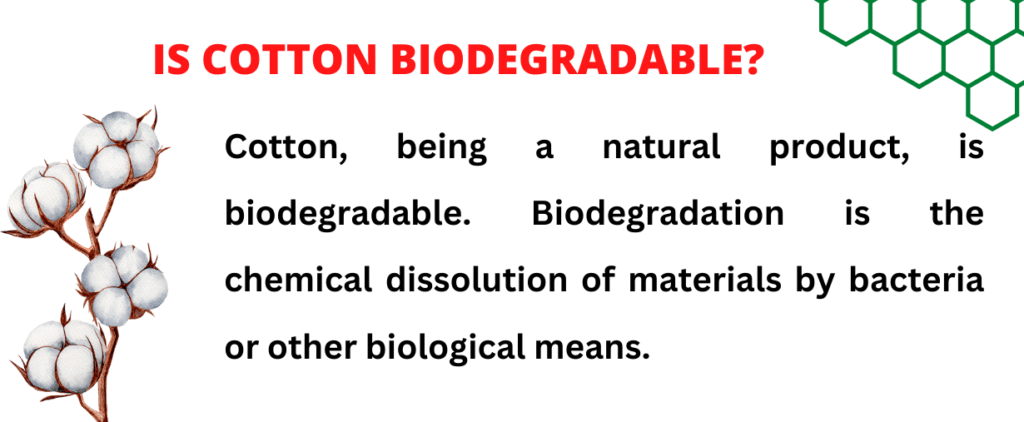Cotton, being a natural product, is biodegradable. Biodegradation is the chemical dissolution of materials by bacteria or other biological means. This means that cotton will decompose whether it is added to a compost pile, bin, or even left to rot naturally. Therefore, cotton has a remarkable advantage over a variety of synthetic materials: We do not have to worry about cotton contributing to landfill filling.

Table of Contents
Biodegradability of Materials
A product basically disappears after it has undergone biodegradation, which is the chemical dissolution of materials by bacteria or other biological means. One of the most biodegradable fabrics you can have is cotton, especially if it is made entirely of cotton. Cotton may biodegrade in compost in as little as a week, but it typically takes 5 months.
The production of yarns and threads, which are then used to create fabrics for clothing and indoor and outdoor furniture, uses about 60% of the total cotton fibre that is harvested.
Some examples of biodegradable materials used in our daily life are listed below:
- Paper
- Fruits
- Kitchen wase.
- Sewage sludge.
- Dead animals and plants
- Wood
- wool
- Human Hair
Are clothes biodegradable?
The majority of textiles and fibres are naturally compostable. However, if a piece of cloth is mixed with synthetic fabrics or covered in dyes and chemicals, it may take hundreds of years before it begins to decompose and blend with the environment. Consider the fabric cotton.
More Links
- BCl3 Lewis Structure in four simple steps - November 1, 2023
- PH3 Lewis Structure in four simple steps - October 8, 2023
- PF3 Lewis structure in four simple steps - September 24, 2023



